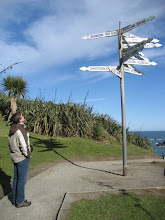If you want art, atmosphere, coffee, WiFi, or wine while you wait for your transfer bus, then I recommend a small shop called Ancient Grounds, 1220 First Ave. The walls have Japanese, Native American, and other art. The sound of running water emanates from fountains.
I found Ancient Grounds by looking on Plazes map for a coffee shop in Seattle near the buses on 1st Avenue and Columbia (four blocks away). I wanted a place to meet a friend today along his bus route from the University District to West Seattle. I enjoyed the atmosphere (and my soy hot chocolate with mint).
2007-01-24
2007-01-21
Reading The Laws of Simplicity (2007-01-20/21)
In The Laws of Simplicity, John Maeda writes, "I originally conceived this book as a sort of Simplicity 101, to give readers an understanding of the foundation of simplicity as it relates to design, technology, business, and life." The laws of simplicity are in three clusters of three laws each. "Of the three clusters, basic simplicity (1 to 3) is immediately applicable to thinking about the design of a product or the layout of your living room." These are my initial thoughts on reading The Laws of Simplicity:
- Reduce "The simplest way to achieve simplicity is through thoughtful reduction." The author's approach to thoughtful reduction is "shrink, hide, embody."
- Design In the agile development of a recent internal alpha release, for an iteration of "Work trays can be shown or hidden at the user's discretion," the software design engineer put the following menu items on the View menu:
- Business Last year I noticed that, due to low net income, the amount in my company's accounts receivable was declining without an increase in checking and savings, but rather with an increase in the amount on lines of credit. My business partner and I disagreed on whether to focus our efforts on directing net income into debt repayment (rather than distribution) or on increasing revenue. We agreed, however, that our debt was too large, so we could agree on a simple goal: achieve a current ratio of 2.0 by 2007-02-01 (and an ongoing current ratio of 1.5). This goal hid accounting complexity and embodied the relationship between current assets and liabilities.
- Organize "Organization makes a system of many appear fewer."
- Life Since reading Stephen R. Covey's First Things First, I have organized my priorities and tasks around the roles I have. Currently I have goals for these roles:
- boyfriend,
- business owner,
- citizen,
- friend, and
- self.
- Time "Savings in time feel like simplicity."
- Life John Maeda writes this about time:
| Insert WorkTray | Left |
| Right | |
| Bottom | |
| Delete WorkTray | Left |
| Right | |
| Bottom |
Saving time is thus the tradeoff between the quantitatively fast and the qualitatively fast:One of my goals for 2007 as a "Citizen" is to drive less than 1200 miles per month. Another goal for my (mental) "Self" is to blog 50 books. I'm looking forward to reading on the bus to further both goals. While not making transit time any shorter, it may make it more tolerable.
How can you make the wait shorter? <---> How can you make the wait more tolerable?
Watching Stranger Than Fiction (2007-01-12)
There's one for you, nineteen for me
'Cause I'm the taxman
Yeah, I'm the taxman
--The Beatles, "Taxman"
Appropriate to my needed renewed empathy for those who aren't "neurotypical," the friend who showed us the existential comedy I Heart Huckabees recently invited us to see Stranger Than Fiction. After dinner in the nearly-empty Bambuza Vietnamese Bistro, we walked to Meridian 16 for the movie.
Will Ferrell describes his character, Harold Crick--an IRS auditor--, as "slightly OCD." If the distinction is "those with OCD know their behavior is problematic where the symptoms of OCPD are part of a person's personality," I would describe Harold as OCPD.
I like movies with multiple levels, stories within stories, and interaction between form and content, so I found the film enjoyable. It's "a movie about a guy who has a narrator." Especially entertaining were the numbers and thin white schematics in scenes emphasizing Harold's counting and alignment.
The appearance of Tony Hale ("Arrested Development") was amusing. The performance of Maggie Gyllenhaal--as the happy and lively love interest--was delightful. (I wonder, Did she give Ryan's message to Jake?)
Harold Crick's life looks boring. Nevertheless, he wants to live it. The movie centers on his efforts to do so despite his "imminent death."
Subscribe to:
Comments (Atom)
